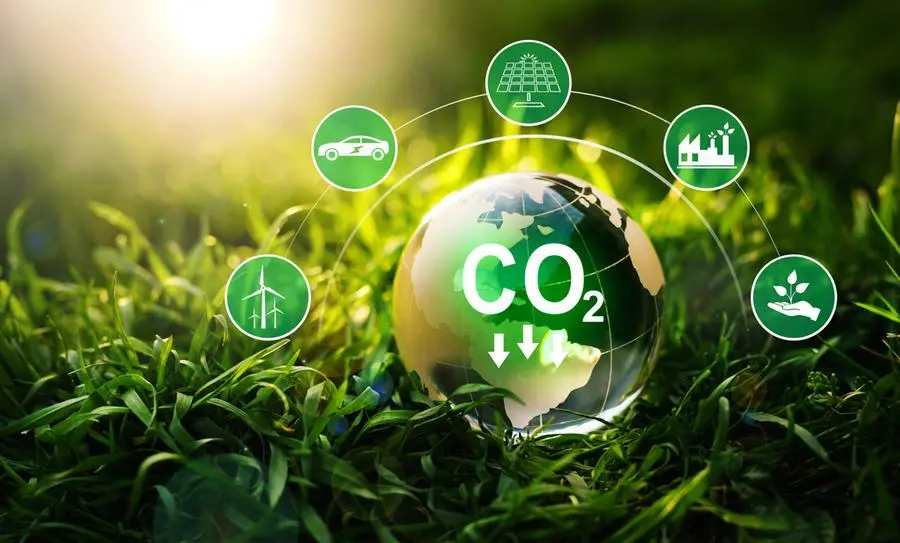With environmental consciousness gaining much-needed momentum, the term “greenwashing” has become increasingly familiar. Greenwashing is the deceptive practice of presenting a misleading impression of a company’s environmental initiatives.
Let us delve into the imperative of moving beyond greenwashing and emphasise the critical importance of genuine commitment to environment sustainable development. By understanding the challenges, setting authentic goals, and implementing tangible actions, we can collectively foster a true paradigm shift towards a sustainable future.
The Greenwashing Quandary
Greenwashing poses a significant obstacle to meaningful progress in environmental sustainability. Companies seeking to capitalise on the growing demand for eco-friendly products and practices, may engage in deceptive marketing tactics that exaggerate or misrepresent their environmental efforts. This can lead to consumer confusion, erode trust, and undermine the legitimacy of bona fide sustainability initiatives.
Challenges in Achieving Genuine Sustainability
Complex Supply Chains
Supply chains are intricate and multifaceted. Companies may find it challenging to trace the environmental impact of every component and process involved in their products, making it difficult to implement comprehensive sustainable practices.
Financial Pressures
The pursuit of short-term financial gains can overshadow long-term environment sustainable development goals. Companies may face pressures to cut costs, prioritise profit margins, and opt for environmentally harmful practices to remain competitive in the market.
Lack of Standardisation
The absence of standardised metrics for measuring environment sustainable development makes it challenging to evaluate and compare the environmental performance of different companies. This lack of transparency can contribute to greenwashing by allowing companies to make vague or unsubstantiated claims about their environmental efforts.
Limited Consumer Awareness
Many consumers may not be fully aware of the intricacies of environment sustainable development or may struggle to differentiate between genuine environmental commitments and greenwashing. This lack of awareness can inadvertently support companies that engage in deceptive practices.
Setting Authentic Goals for Environment Sustainable Development
Transparency and Accountability
Genuine commitment to sustainability begins with transparency and accountability. Companies must openly communicate their environmental goals, detailing specific initiatives and providing evidence of progress. This builds trust with customers and stakeholders.
Emission Reduction Targets
Establishing measurable emission reduction targets is a concrete step towards environment sustainable development. Companies can set specific goals for reducing greenhouse gas emissions, energy consumption, and other environmental impacts, holding themselves accountable for progress.
Circular Economy Practices
Embracing circular economy principles involves minimising waste and maximising resource efficiency. Companies can commit to designing products for reuse, recycling, and repair, reducing reliance on finite resources and contributing to a more resilient economy.
Implementing Tangible Actions
Investment in Renewable Energy
Transitioning to renewable energy sources is a tangible action that significantly reduces a company’s carbon footprint. By investing in solar, wind, or other renewable technologies, companies can actively contribute to a cleaner and more sustainable energy landscape.
Sustainable Supply Chain Practices
Companies should assess and improve the sustainability of their supply chains. This involves working closely with suppliers, ensuring ethical labour practices, minimising transportation-related emissions, and prioritising environmentally responsible sourcing.a
Biodiversity Conservation
Acknowledging the importance of biodiversity, companies can actively engage in conservation efforts. This may include supporting initiatives to protect natural habitats, investing in reforestation projects, and adopting agricultural practices that preserve ecosystems.
Community Engagement and Education
True sustainability extends beyond the corporate realm and includes active engagement with local communities. Companies can support environmental education programs, participate in community initiatives, and collaborate with local organisations to address environmental challenges collectively.
Navigating the Path Forward
The journey towards genuine environment sustainable development requires a collective commitment from individuals, businesses, and policymakers alike. By acknowledging the challenges, setting authentic goals, and implementing tangible actions, we can move beyond greenwashing and foster a culture of true sustainability.
Governments play a crucial role in creating regulatory frameworks that incentivise sustainable practices and penalise deceptive greenwashing. Consumers, armed with awareness, can make informed choices, supporting companies that demonstrate genuine commitment to environmental responsibility.
In this pivotal moment in history, where the consequences of environmental degradation are increasingly apparent, the imperative for genuine sustainability is non-negotiable. By holding ourselves and the entities we engage with accountable, we can collectively steer the course towards a more sustainable, resilient, and harmonious coexistence with the planet we call home.









